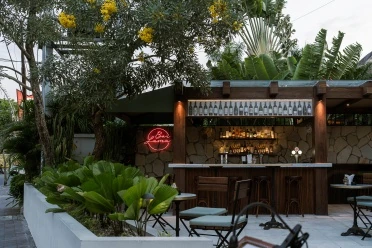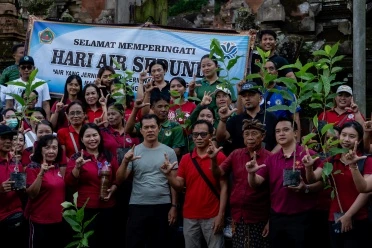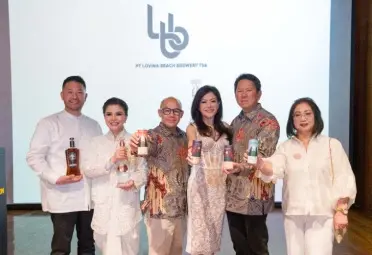Bali’s calendar is filled with sacred days that blend spirituality with daily life, where knowledge, food, water, and even the act of breathing are celebrated as divine gifts. One of the most intriguing among them is Soma Ribek, often called The Blessful Monday.
This ritual takes place once every six months on Soma Pon Sinta, exactly two days after Saraswati, the day dedicated to knowledge, and one day after Banyu Pinaruh, the day of purification.
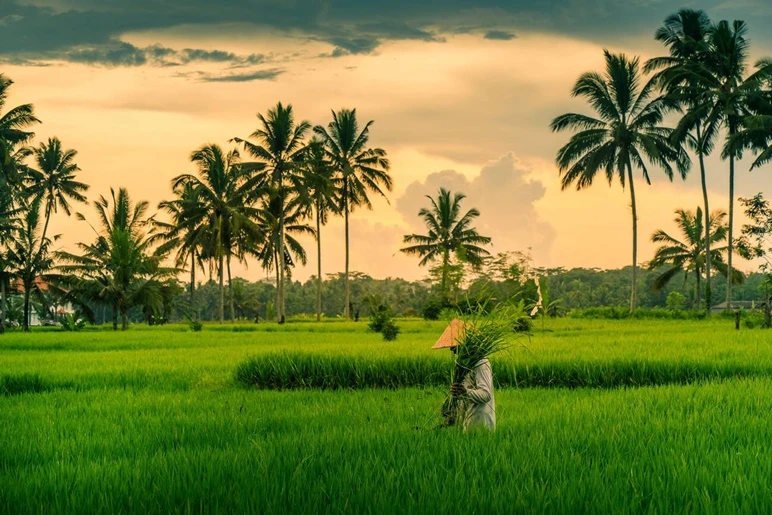
What Is Soma Ribek?
Soma Ribek is a day when Balinese Hindus reflect on the abundance of food and honor the divine force that ensures it. Linguistically, the name carries a clear message: Soma means Monday, while Ribek comes from ri, meaning day, and bek, meaning full. Taken together, it is understood as Monday full of blessings. On this day, worship is directed toward Sang Hyang Sri Amrta, the goddess of fertility and prosperity who dwells in the rice barn, or lumbung.
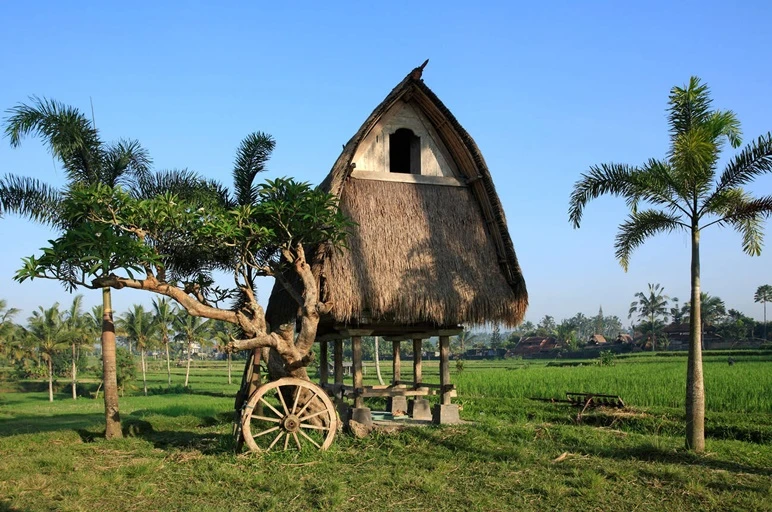
Often called the Balinese “Day of Food,” Soma Ribek emphasizes that knowledge, which Saraswati bestows, must be grounded in practical wisdom that guarantees sustenance and prosperity. It is a day that fuses reverence with responsibility, gratitude with mindfulness.
The Sacred Elements of Soma Ribek
The date of Soma Ribek is rich with symbolism. Monday is associated with Sang Hyang Wisnu, who manifests as water, the element of purity and life. The day’s market cycle, known as Pon, relates to Sang Hyang Mahadewa, who appears as air, the breath and energy that animates existence. The wuku, or week’s name, Sinta, is linked to Sang Hyang Yama, who manifests as fire, the power of transformation. Together, these three sacred presences form amerta, the elixir of life that sustains every living being.
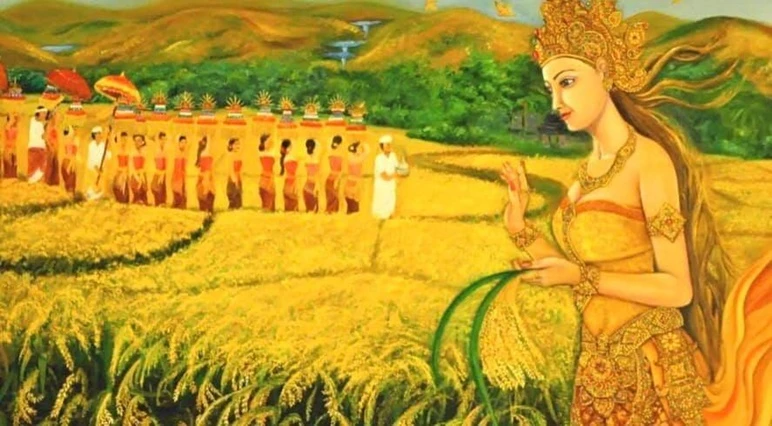
Rituals and Traditions
Each community in Bali celebrates Soma Ribek in its own way, yet the spirit remains consistent. Villages that still maintain traditional rice barns hold ceremonies in the lumbung, paying homage to Dewi Sri. Families without barns conduct rituals at home with their own stored rice. The offerings for Soma Ribek, called banten Soma Ribek, are carefully prepared. Rice cakes, fermented rice, and sugarcane are arranged with small offerings such as raka-raka and canang. Decorative elements are included as well, with white and yellow steamed cakes, woven rice cakes known as tipat sari, and intricately prepared arrangements placed in vessels called tangkih. These offerings serve as both an act of thanksgiving and a prayer for future harvests that are even more abundant.
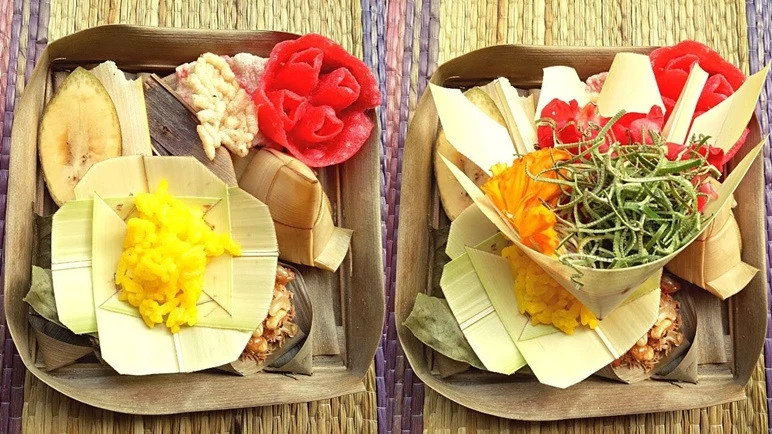
The day itself is considered so sacred that everyday farming activities are deliberately paused. The Lontar Sundarigama notes that people are not permitted to pound rice or sell grain on Soma Ribek, since these acts would disrupt the spiritual stillness required for honoring Dewi Sri. In many regions, the restrictions extend even further to include not harvesting crops, not picking fruit or vegetables, and not exchanging food with others. The pause becomes a cultural punctuation mark, reminding the community that food is not merely an economic resource but a divine essence to be treated with respect.
The Meaning Behind the Blessings
The sequence of Saraswati, Banyu Pinaruh, and Soma Ribek forms a larger narrative. First, knowledge descends through Saraswati, then purification follows with Banyu Pinaruh, and finally Soma Ribek completes the cycle by centering gratitude for food, the foundation of survival. It is a spiritual progression that moves from the mind to the body and ultimately to sustenance, showing that wisdom, purity, and nourishment are inseparable.
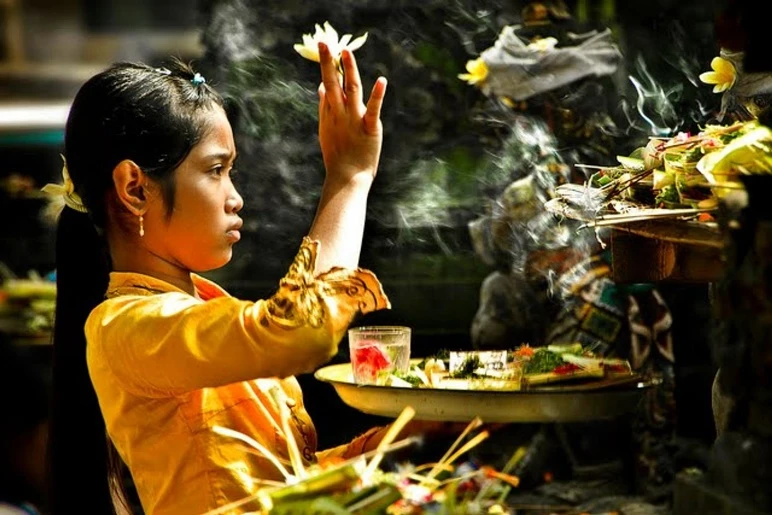
In the modern context, this lesson resonates even more strongly. While food is often treated as an easily accessible commodity, Soma Ribek reminds Balinese Hindus that it is in fact a fragile miracle, dependent on soil, rain, and human care. To be grateful for food is also to take responsibility for protecting the earth and its cycles of growth.



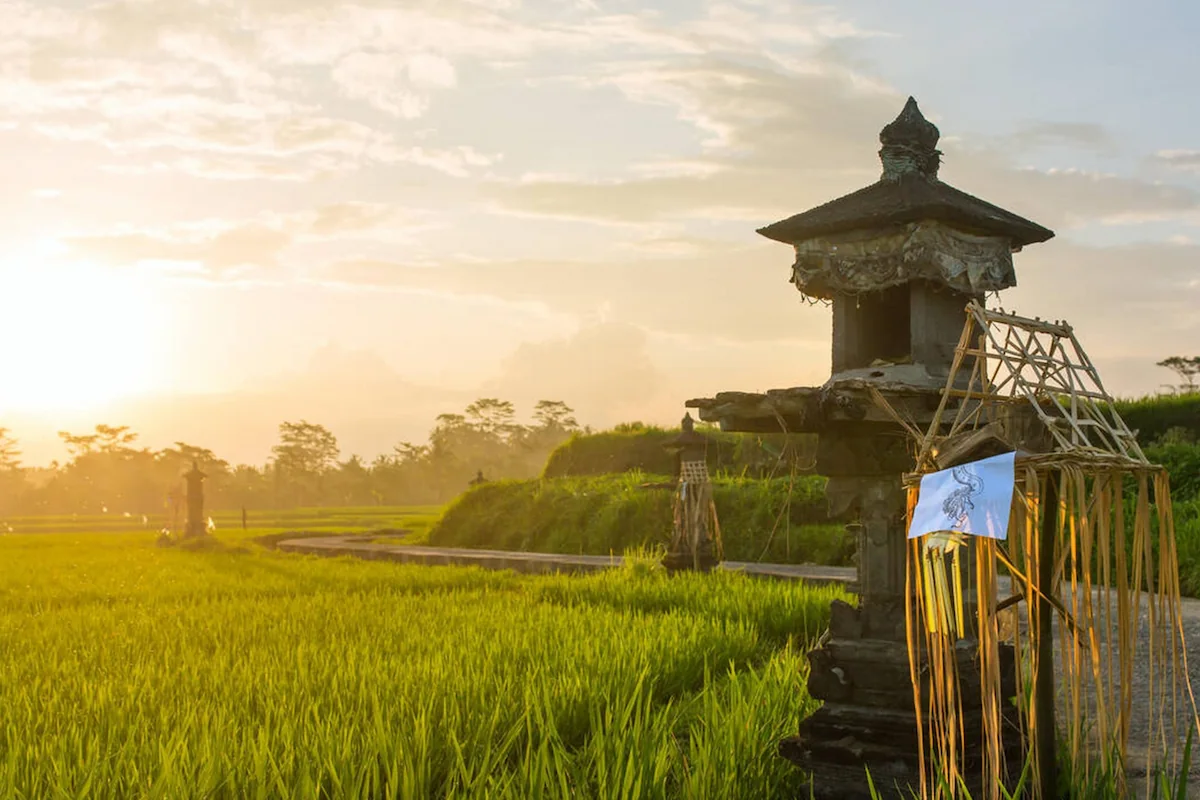
 Billy Bagus
Billy Bagus
 Sep 09, 2025
Sep 09, 2025
